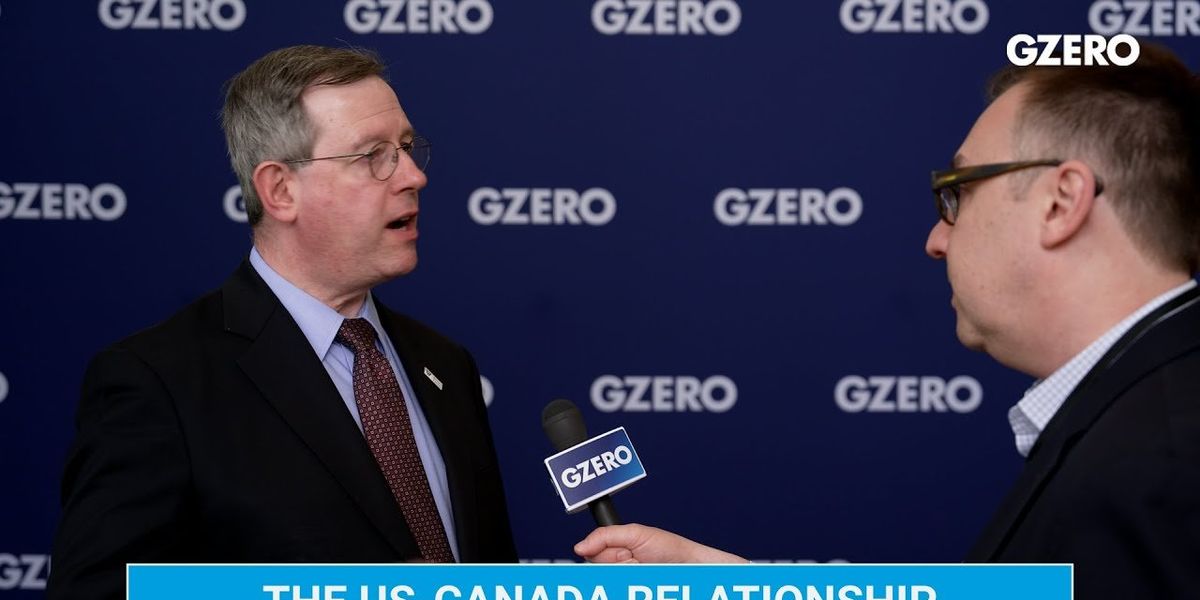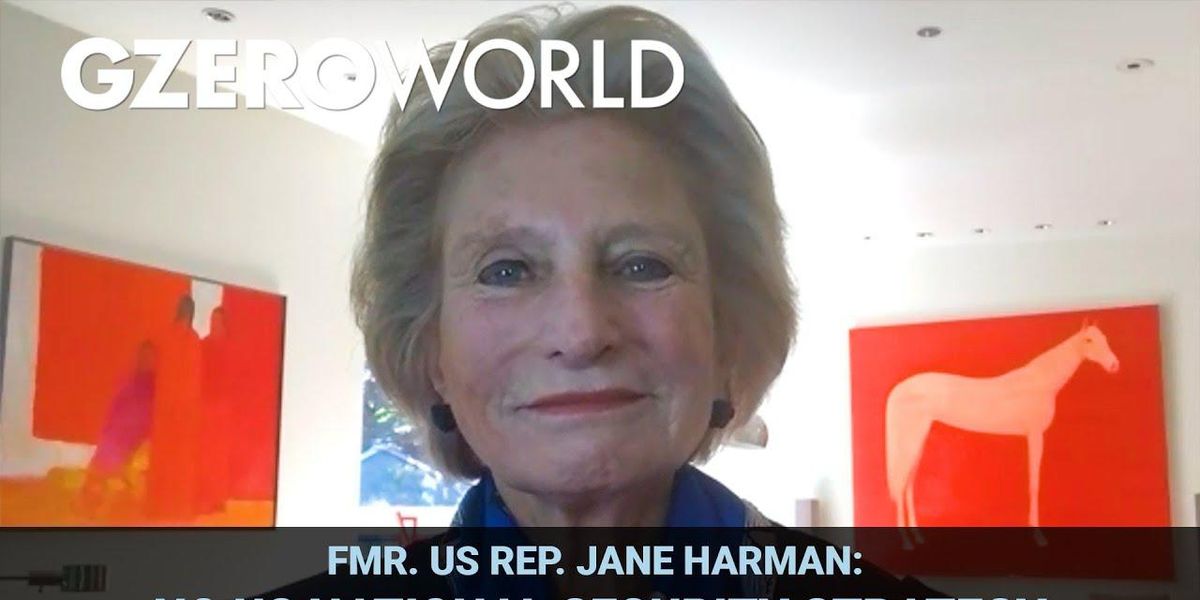Trending Now
We have updated our Privacy Policy and Terms of Use for Eurasia Group and its affiliates, including GZERO Media, to clarify the types of data we collect, how we collect it, how we use data and with whom we share data. By using our website you consent to our Terms and Conditions and Privacy Policy, including the transfer of your personal data to the United States from your country of residence, and our use of cookies described in our Cookie Policy.
{{ subpage.title }}
A general view of the Ronald Reagan Building and International Trade Center, in Washington, DC, where the Wilson Center is located.
Canada Institute scrambles to survive
At a moment of historic difficulty in the Canada-US relationship, Donald Trump last week cut the funding of the Wilson Center’s Canada Institute, and he can likely block efforts to save it.
The think tank, which has studied the relationship and hosted events for visiting Canadian politicians since 2001, got a death sentence last week in the same Trump executive order that defunded Voice of America, Radio Free Europe, and Radio Free Asia.
Former American Ambassador to Canada Bruce Heyman, who is co-chair of the institute’s advisory board, is hoping it can be saved.
“It has hosted prime ministers and ministers and leaders of every party in Washington, and it is a platform and a format that I think has been an important component of the bilateral relationships,” he said. “If this doesn't get resolved with the White House, I'm going to work with the Canada Institute to explore alternatives.”
Heyman thinks that the institute, which has relied on US government funding, could find funding from Canadian governments or businesses that want to maintain the link, but that may depend on permission from the US government, which seems uninterested in cooperating with Canada.
Finding funding should be possible, says Laura Dawson, former director, but that doesn’t mean it will be able to continue to occupy the primo real estate off Pennsylvania Ave.
“Lots of organizations would be prepared to step up and support the work of the Canada Institute, but its greatest value is it being situated within the Wilson Center and having such great access to US policymakers being right between the White House And the Capitol Building,” she said. “That is a really premium location and privileged access, and that would be very hard to duplicate.”
For now, the Institute’s many fans will have to wait for the White House to decide whether it wants to finish it off or let it continue its work in another form.
Canada has lower risk appetite than the US, says think tank chief
At the US-Canada Summit in Toronto, GZERO's Tony Maciulis asks Chris Sands, head of the Wilson Center's Canada Institute, for his biggest takeaway from the recent meeting between US President Joe Biden and Canadian PM Justin Trudeau.
Sands also has some thoughts on the most pressing issues in the US-Canada relationship, especially migration. And he offers his take on why one-third of Canadians now think that bilateral ties are getting worse.
Finally, do Canadians care about former US President Donald Trump getting indicted?
For more, sign up for GZERO North, the new weekly newsletter that gives you an insider’s guide to the world’s most important and under-covered trading relationship, US and Canada.
- US-Canada can and will extract critical minerals sustainably, says top US diplomat ›
- US green subsidies pushback to dominate Biden's Canada trip ›
- Buddy Biden and budget: Enough to boost Trudeau? ›
- Biden-Trudeau talks focus on immigration and defense ›
- Ian Explains: Biden-Trudeau summit well worth the wait - GZERO Media ›
Did the War on Terror make the US safer?
For former US Rep. Jane Harman (D-CA), 20 years after 9/11 the War on Terror has made the US and the world safer in some ways, but less safe in others. She shares her thoughts in an interview with Ian Bremmer, during which Harman also discusses why the US currently lacks a coherent national security strategy — and in fact hasn't had one since the end of the Cold War.

